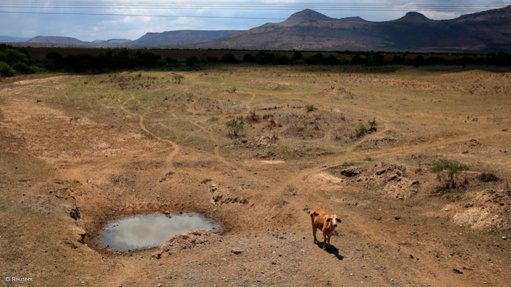
Photo by: Reuters
Stock farmers and irrigation farmers are among the hardest hit by the drought.
The Provincial disaster declaration will be used as a further motivation to request drought relief funding from the National Government.
In March, the Western Cape Department of Agriculture estimated that R96 million was needed to support farmers in drought affected areas for five months.
Alan Winde, Minister of Economic Opportunities, said stock farmers, who farm with livestock, and irrigation farmers, who use irrigation systems to water their crops, have been among the worst affected.
“In livestock, we estimate that more than 30 000 animals have been sold as farmers battle to feed their core herds. We’ve seen a decline in the volume of wine grapes harvested, in part due to a lack of irrigation water. This will result in an estimated R500 million loss in that industry.
“Current water restrictions for irrigation farmers vary from 30% to 100% in the Berg/Riviersonderend water system. These restrictions can have a serious impact on the crop yields in 2017/18. It means very little water will be available for the very important post-harvest irrigation period. During post-harvest irrigation, water is needed to move the fertiliser into the soil in preparation for the next crop.”
Minister Winde said the Western Cape Department of Agriculture had allocated R80 million for drought relief through reprioritisation of the equitable share budget since 2015/16. These funds have supported farmers with the purchasing of fodder for their animals.
“During the irrigation season we also provided irrigators with near real time data on the actual crop water use and water shortages experienced by their crops through the FruitLook project. Farmers can access accurate information on the water needs of their crops, field by field, at any given time. Using only satellite data and weather station data, we can tell farmers how much water their crops used in the previous week and whether the crops experienced any water deficits.”
Issued by Western Cape Government